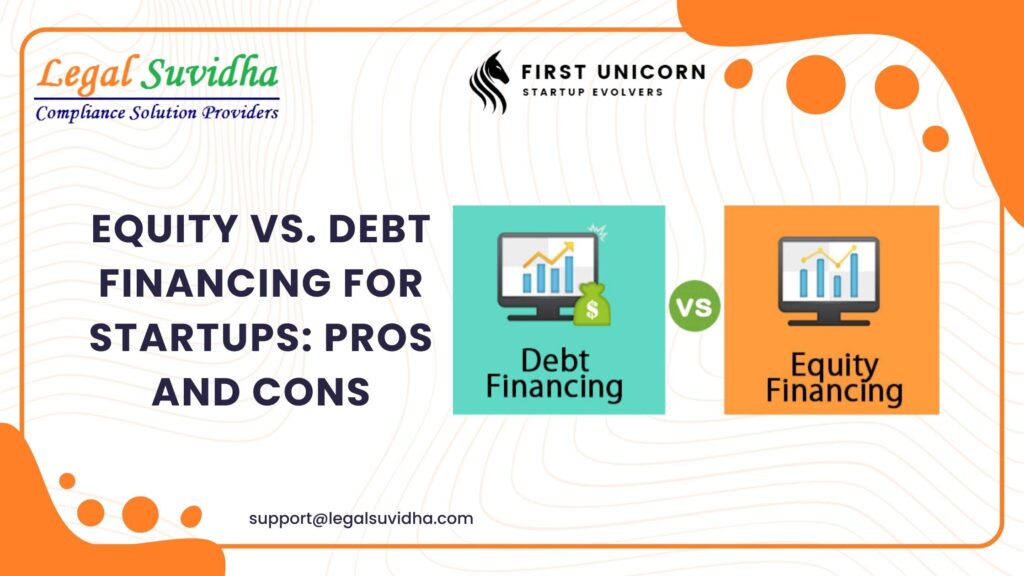Equity vs. Debt Financing for Startups: Pros and Cons
Introduction
When starting or growing a business, securing funding is a critical aspect of the journey. Startups often face the decision of choosing between equity financing and debt financing. Both types of financing have distinct characteristics, advantages, and drawbacks, and understanding these differences is essential for making an informed decision about which is best for your business.
1. What is Equity Financing?
Equity financing involves raising capital by selling ownership stakes in your company in the form of equity shares. In return for their investment, equity investors receive shares or ownership percentages of the business and, typically, voting rights.
How it works:
- The business offers a certain percentage of ownership in exchange for capital.
- Investors gain a share in the profits, but also take on the risks.
- There are no fixed repayment schedules or interest charges.
Pros of Equity Financing
- No Repayment Obligation
- Shared Risk
- Expertise and Networks
- No Collateral Required
- Flexibility
Cons of Equity Financing
- Dilution of Ownership
- Profit Sharing
- Pressure from Investors
- Time-Consuming and Costly
- Exit Strategy
2. What is Debt Financing?
Debt financing involves borrowing money from a lender (e.g., banks, financial institutions, or other creditors) with the agreement to repay the amount with interest over time. Common forms of debt financing include business loans, credit lines, and bonds.
How it works:
- The startup borrows a sum of money that it agrees to pay back, typically with interest, over a set period.
- Debt financing does not involve giving up ownership of the company.
- The business must meet regular repayment obligations regardless of its financial situation.
Pros of Debt Financing
- No Equity Dilution
- Predictable Repayments
- Tax Benefits
- Retain Full Profits
- No Loss of Control
Cons of Debt Financing
- Repayment Pressure
- Interest Payments
- Collateral Requirement
- Increased Debt Burden
- Risk of Overleveraging
3. Key Differences Between Equity and Debt Financing
| Aspect | Equity Financing | Debt Financing |
|---|---|---|
| Ownership Dilution | Dilutes ownership and control | No dilution of ownership or control |
| Repayment | No repayment obligation | Fixed repayment schedule with interest |
| Risk | Shared risk with investors | Risk lies with the business |
| Profit Sharing | Investors share profits | Lender does not share profits |
| Collateral | No collateral required | Collateral often required to secure the loan |
| Control | Investors may have a say in decision-making | Business retains full control |
| Tax Benefits | No tax benefits | Interest payments are tax-deductible |
| Funding Process | Time-consuming, requires negotiation and due diligence | Relatively faster and less complex |
4. When to Choose Equity Financing
Equity financing is ideal when:
- You need large amounts of capital.
- You have a high-growth, scalable business.
- You need expertise or mentorship.
- You’re comfortable giving up some control.
5. When to Choose Debt Financing
Debt financing is suitable when:
- You have a stable, predictable cash flow.
- You want to retain full control.
- You want to avoid sharing profits.
- You have assets to pledge.
6. Conclusion
Both equity and debt financing have their respective advantages and disadvantages. The decision largely depends on your business’s needs, growth stage, financial situation, and long-term goals.
Looking for Startup Funding/Grant/Loan for your Business? Fill out the form below!










